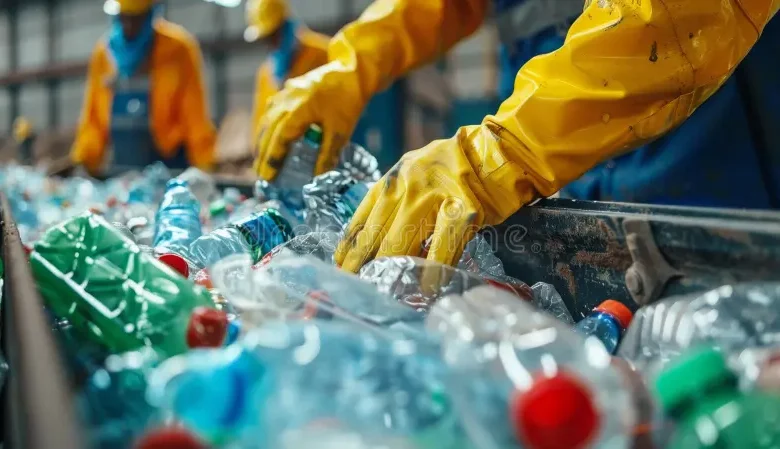A Comprehensive Look at Waste Management Services: Efficiency, Responsibility, and Sustainability

Modern living generates waste—lots of it. Whether in residential neighborhoods, commercial complexes, or industrial facilities, managing waste responsibly is essential for maintaining cleanliness, protecting the environment, and ensuring public health. That’s where a waste management service becomes not just helpful, but indispensable.
This article explores what a waste management service entails, the types of waste it handles, how the process works, the benefits it offers, and how to select the right service for your specific needs. If you’re looking to streamline waste handling while supporting sustainability, this guide will provide the insights you need.
What Is a Waste Management Service?
A waste management service refers to a structured system designed to collect, transport, process, recycle, or dispose of waste materials safely and efficiently. These services are offered by municipal entities or private companies and may handle a wide range of waste types, including:
- Residential garbage
- Commercial refuse
- Industrial waste
- Hazardous materials
- Organic waste
- Recyclables
- E-waste (electronic waste)
- Construction debris
The overarching objective of waste management is to minimize the environmental impact of human-generated waste while maximizing recovery, reuse, and recycling wherever possible.
Why Waste Management Matters
The world generates over 2 billion tons of solid waste every year. Without effective systems to manage that waste, communities would face significant issues, including:
- Overfilled landfills
- Soil and water contamination
- Air pollution from burning trash
- Health hazards from uncollected or improperly stored waste
- Increased greenhouse gas emissions
An effective waste management service ensures that waste is properly sorted, stored, and either recycled, composted, or disposed of in a manner that complies with environmental standards.
Types of Waste Handled
Waste isn’t one-size-fits-all. Different kinds of waste require different handling techniques and disposal strategies:
1. Municipal Solid Waste (MSW)
Commonly known as household or residential waste, this includes packaging, food scraps, clothing, paper, and broken items.
2. Commercial Waste
Generated by businesses, offices, restaurants, and retail stores, it often includes paper, packaging materials, and discarded inventory.
3. Industrial Waste
Comes from manufacturing and production facilities. It includes materials such as scrap metal, chemicals, and industrial by-products.
4. Hazardous Waste
This includes chemicals, batteries, paints, solvents, and medical waste—materials that require specialized handling to prevent environmental damage or harm to humans.
5. Electronic Waste (E-Waste)
Old electronics like computers, TVs, and phones contain toxic components that need special disposal methods.
6. Organic Waste
Food scraps, yard waste, and compostable materials that can be processed into nutrient-rich compost.
7. Construction and Demolition Waste
Debris from construction, renovation, or demolition projects, including bricks, wood, concrete, drywall, and glass.
An effective waste management service often offers tailored solutions for each of these categories.
The Waste Management Process: Step-by-Step
Whether you’re a homeowner or a facility manager, understanding how waste is handled helps you make smarter decisions. Here’s a general overview of how waste management services operate:
1. Collection
Bins are provided to collect waste types (general, recyclable, compostable, hazardous, etc.). Pickups are scheduled regularly or on demand.
2. Transportation
Specialized vehicles transport the waste to treatment, recycling, or disposal centers. These trucks are often equipped with GPS tracking and route optimization software to improve efficiency.
3. Sorting and Segregation
At transfer stations or material recovery facilities (MRFs), waste is sorted into recyclables, compostables, and non-recyclables. This stage is crucial for maximizing landfill diversion.
4. Recycling or Processing
Recyclable materials like paper, metal, and plastic are processed and sent to manufacturers for reuse. Organic waste is turned into compost or biofuel, while hazardous waste is treated to neutralize its effects.
5. Disposal
Non-recyclable, non-compostable, or treated hazardous waste is sent to sanitary landfills or incineration facilities, depending on the waste type and environmental regulations.
Benefits of a Professional Waste Management Service
Hiring a professional waste management provider has many advantages beyond just “getting rid of trash.”
1. Environmental Protection
Professionals know how to handle various waste types safely. They reduce pollution by ensuring proper disposal and maximizing recycling rates.
2. Health and Safety
Accumulated waste can attract pests, harbor bacteria, and release toxic fumes. Regular, professional collection ensures clean and safe environments.
3. Regulatory Compliance
Waste handling is governed by numerous local and international regulations. Professional services ensure compliance, preventing legal complications and fines.
4. Time and Cost Efficiency
Outsourcing waste collection and disposal eliminates the need for in-house resources and frees up time to focus on core tasks.
5. Data and Reporting
Commercial clients, especially those focused on sustainability, benefit from detailed reporting that tracks waste volumes, recycling rates, and environmental impact.
6. Scalable Solutions
Whether you’re a small household, a busy office complex, or a large manufacturing facility, professional waste management services can scale up or down based on your needs.
Choosing the Right Waste Management Service
Not all waste collection and disposal companies are the same. Here’s how to choose a reliable partner:
1. Range of Services
Do they offer residential, commercial, and industrial waste solutions? Can they handle recycling, hazardous waste, and construction debris?
2. Reputation and Reviews
Check online ratings, customer testimonials, and business accreditations to evaluate the company’s reliability and professionalism.
3. Environmental Commitment
Opt for a company that actively supports recycling, composting, and reducing landfill contributions.
4. Customized Plans
Different businesses and homes have unique needs. Look for providers offering flexible plans and schedules that suit your requirements.
5. Technology and Transparency
Modern providers use technology to track pickups, monitor bin usage, and report on waste diversion. This adds accountability and insight into your waste footprint.
6. Customer Support
Responsive customer service is key—whether you’re requesting a bulk pickup, reporting a missed collection, or modifying your service plan.
Innovations in Waste Management
As sustainability becomes a global priority, the waste management industry is evolving rapidly with smart technologies and greener practices:
- Smart Bins: Equipped with sensors that alert when they’re full, reducing unnecessary pickups.
- Waste-to-Energy Plants: Convert non-recyclable waste into electricity or fuel.
- AI-Powered Sorting: Speeds up recycling by identifying and separating materials automatically.
- Circular Economy Programs: Encourage reusing and repurposing materials instead of discarding them.
Such innovations aim to transform waste from a problem into a valuable resource.
Waste Management and Sustainability
A well-structured waste management service plays a pivotal role in supporting sustainable development goals (SDGs). Here’s how:
- Reducing Landfill Use: Promoting recycling and composting to reduce the need for landfill space.
- Lowering Carbon Emissions: Through energy-efficient transport and diversion of biodegradable waste.
- Resource Conservation: Recycling preserves raw materials and reduces the energy needed for new production.
- Education and Awareness: Services often offer workshops and resources to help clients minimize their waste output.
By managing waste more intelligently, society can move closer to a zero-waste future.
The Risks of Poor Waste Management
Without proper systems in place, the effects of mismanaged waste can be devastating:
- Water Pollution: Runoff from landfills or illegal dumping can contaminate lakes, rivers, and groundwater.
- Air Pollution: Open burning of waste releases harmful toxins and greenhouse gases.
- Health Hazards: Improper handling of medical or hazardous waste can lead to serious health risks.
- Pest Infestations: Accumulated garbage attracts rodents, insects, and bacteria.
Investing in a reliable waste management system is not just good practice—it’s a necessity for any modern community or business.
Conclusion
A reliable waste management service is a cornerstone of responsible living and business operations. Beyond simply removing trash, it supports health, environmental sustainability, and regulatory compliance. As waste generation continues to rise, choosing the right partner to handle your waste isn’t just about convenience—it’s about accountability and long-term impact.
Whether you’re a homeowner looking to streamline weekly trash removal or a commercial enterprise aiming to boost your sustainability credentials, a professional waste management provider can help you meet your goals while protecting the environment.




